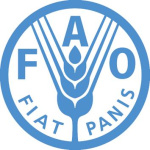- Branche: Agriculture
- Number of terms: 87409
- Number of blossaries: 0
- Company Profile:
Established in October 1945 with the objective of eliminating hunger and improving nutrition and standards of living by increasing agricultural productivity, FAO coordinates the efforts of governments and technical agencies in programs for developing agriculture, forestry, fisheries, and land and ...
The process by which pollen of a given plant fertilizes the ovules of the same plant. Plants fertilized in this way are said to have been selfed. An analogous process occurs in some animals, such as nematodes and molluscs.
Industry:Biotechnology
The process by which the accumulated end product of a biochemical pathway stops synthesis of that product. A late metabolite of a synthetic pathway regulates synthesis at an earlier step of the pathway. <i>cf</i> end-product inhibition.
Industry:Biotechnology
The process by which the present diversity of plant and animal life arose from the earliest organisms, a process believed to have been continuing for at least 3 000 million years.
Industry:Biotechnology
The process during which a plasma cell stops producing antibodies of one class and begins producing antibodies of another class.
Industry:Biotechnology
The process of "turning on" the expression of a gene or set of genes whose expression has been repressed (turned off). Displacement of a repressor protein from a promoter region of DNA. When attached to the DNA, the repressor protein prevents RNA polymerase from initiating transcription. The "turning on" of a gene.
Industry:Biotechnology
The process of adding complementary nucleotide extensions to different DNA molecules, e.g., dG (deoxyguanosine) to the 3´-hydroxyl ends of one DNA molecule and dC (deoxycytidine) to the 3´-hydroxyl ends of another DNA molecule to facilitate, after mixing, the joining of the two DNA molecules by base pairing between the complementary extensions. Also called dG - dC tailing, dA - dT tailing.
Industry:Biotechnology
The process of cell death, which occurs naturally as a part of normal development, maintenance and renewal of tissue in an organism. Apoptosis differs from necrosis, in which cell death is caused by a toxic substance.
Industry:Biotechnology
The process of changing the rate of a chemical reaction by use of a catalyst.
Industry:Biotechnology
The process of choosing individuals possessing desired characteristics from among a hybrid population.
Industry:Biotechnology
The process of crossing over, which occurs during meiosis I. It involves breakage in the same position of each of a pair of non-sister chromatids from homologous chromosomes, followed by joining of non-sister fragments, resulting in a reciprocal exchange of DNA between non-sister chromatids within an homologous pair of chromosomes.
Industry:Biotechnology
